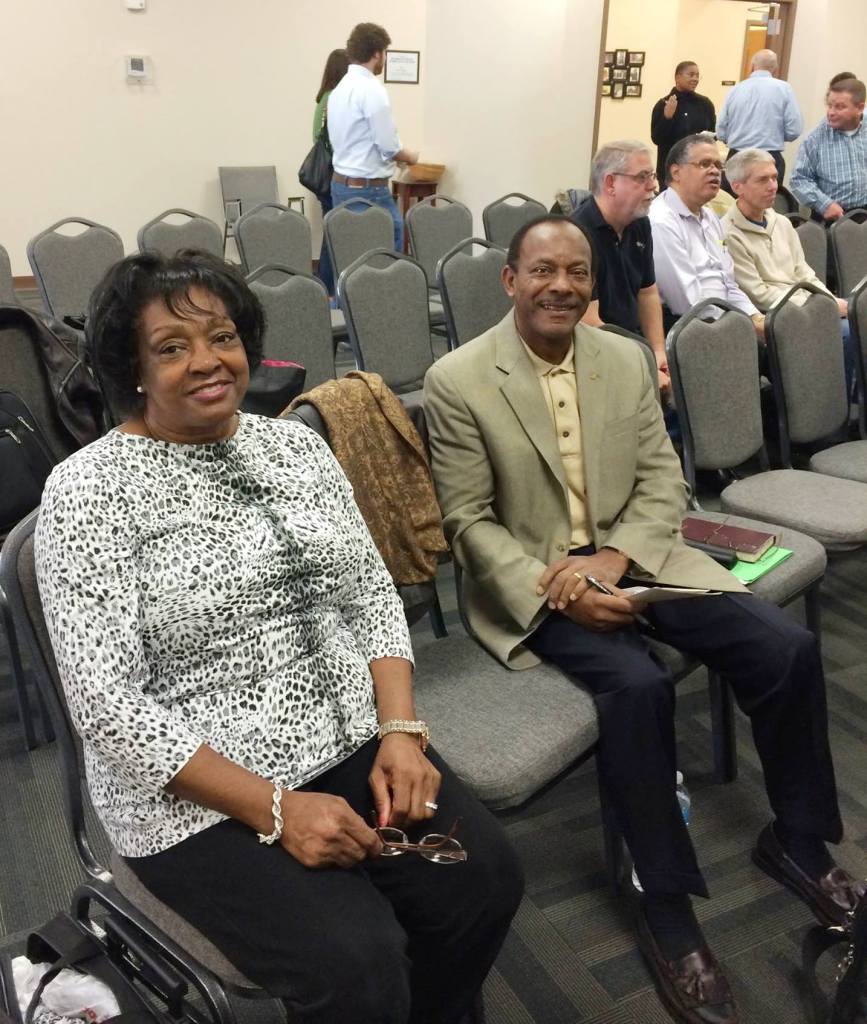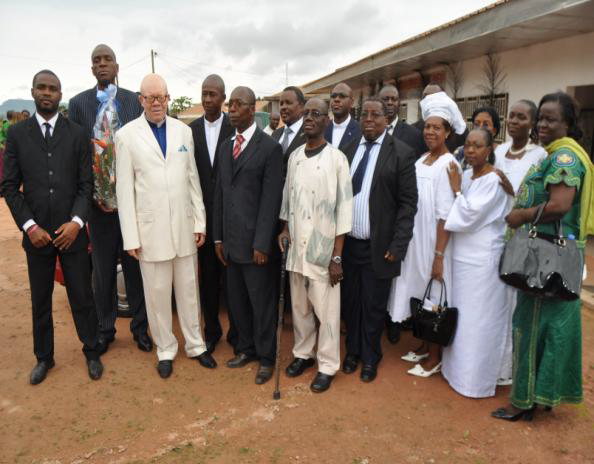In an essay entitled “Guidelines to an Understanding of the Person and Work of the Holy Spirit,” Dr. Gary Deddo offers an incarnational, Trinitarian perspective on the doctrine of the Holy Spirit. We are publishing his essay serially in seven parts. Here is part four (to read other parts, click on a number: 1, 2, 3, 5, 6, 7).
The importance of the Spirit
Why the need to talk about the Spirit beyond simply acknowledging him? First, because a disconnection between the Divine Persons can develop in our understandings of the Father and the Son and the Spirit. As a matter of fact, many churches end up emphasizing and talking almost exclusively about the Father. Others restrict their focus to the Son, while others have a tendency to put the spotlight on the Spirit. Such understandings are fragmented, but that doesn’t mean God is fragmented. Misunderstanding trips us up in our faith and in our lived relationship to God. In the end we want our understanding to be faithful and coherent with the truth of God as all three persons, not dividing them up.
As faith seeks understanding, we aim to improve our understanding so that it more faithfully matches the reality. You can recognize and interact with things better when you have improved understanding. So as we gain a clearer understanding of the Spirit in relationship to the Father and Son we’ll better recognize the ministry of the Spirit. We can more joyfully and peacefully join in with the Spirit when our understanding matches who the Spirit is and then how we’re involved in what the Spirit is doing.
What theological understanding of the Spirit can offer
Theological work aims to fix things on our side, not fix things on God’s side. We can grow in understanding even if the reality is not changed by our better grasp. And if we have misunderstandings, it will be good to clear them up. As the Holy Spirit is working, it is far better to be aware of that work compared to being unaware.
But our better understanding does not make something real or change the nature of the Spirit’s working. God does not all of a sudden become the Holy Spirit when we recognize the Spirit. The Holy Spirit is not tied up, unable to do anything until we figure him out. That would be like saying the wind is tied up until we can figure it out.
No, the Spirit still works, but we may not recognize it. And by recognizing it we may more fully participate, we become more involved, become more in tune with the truth and reality of who God is. So, we’re trying to make sure our understanding matches the truth about who God is such as the Spirit has been revealed to us.
So we need to remember that our understanding may be fragmented but God is not fragmented. Our understanding of the working in the ministry of the Spirit may be fragmented but that doesn’t mean the actual working of the Spirit is fragmented. We’re not controlling God by our understanding. If that were the case then God would be dependent upon us. But we want to sort this all out and let our understanding be as full as it can be.
How do we fix the problem of a lack of awareness and understanding of the Spirit?
How do we then bring our understanding of the ministry of the Spirit up to speed in a way that recognizes the Spirit is one of the three Divine Persons of the Trinity? Some are concerned about the need to speak proportionately about the Holy Spirit. We might say, giving the Holy Spirit equal time or equal emphasis. What’s behind that concern?
There are situations where our faith and understanding of the Spirit is lacking, and so lags behind the Father and Son. Wherever we find this situation, it ought to be rectified. We should become familiar with all that’s been revealed to us about the Spirit and then pass that on to others. So in those cases, additional teaching and focus on the Spirit is called for. (Although this should never be the exclusive focus.) In that way our faith and knowledge of the Spirit will become better aligned with the other Divine Persons.
Objections to pursuing the Holy Spirit
In pursuing this kind of correction, we may run into some obstacles that contributed to the unbalanced situation in the first place. For example, some persons might not be interested in the Spirit and so have neglected the topic. Hopefully those in this condition who worship the Triune God will come around and see that the Holy Spirit is no less important than the Father and Son.
Others may not want to know or have much to do with the Holy Spirit because the Spirit seems kind of, well, spooky. We usually don’t want to be around ghosts, especially one you can’t control or that you can’t identify or you can’t nail down, can’t make a part of your program and who is, well, like the wind (or maybe a typhoon!). Who wants that?
Some people may be avoiding the Spirit because they have certain worries. That’s not the best reason not to have an interest in the Holy Spirit. Their fears may be based in part (or perhaps in whole) on ignorance or misinformation about the nature of the power and working of the Holy Spirit. Those who have misgivings may not have a good grasp on who the Holy Spirit is. The Spirit isn’t like a ghost or something to be fearful of in the sense that it might do us harm. So helping people know that the Spirit is Holy, is good, is crucial.
The best way to do this is to emphasize regularly that the Spirit has the exact same character and purpose as Jesus. There is no slippage in mind, attitude, or aim between the two. The best way to identify the working of the Spirit is to compare it to what we know about Jesus. It is his Spirit. If it doesn’t feel, sound, taste and work like Jesus, then it is not his Spirit. Knowing Jesus is how we best discern the spirits, that is, which is the Holy Spirit.
Some could think the Spirit is now irrelevant to our current situation or no long available to us, at least as in the days of the early church. That was back in those days, some may think. That would be another poor reason, however, to have little or no interest in the Spirit. While it’s perfectly acceptable to raise questions about the working of the Spirit today, there is no biblical teaching designed to inform us that the Spirit cannot or will not continue to work as in the days of the early church. Of course this does not mean that the Spirit cannot adjust the mode of his ministry as, in his wisdom, he sees fit from time to time and place to place. He can in his sovereign grace make adjustments. However, there is no absolute reason that the Spirit could not continue to work today as in the days of the New Testament. That is up to the Spirit.
Those who dogmatically conclude that the Spirit does not work and cannot work in the same manner have argued from their own experience, and on that basis they have selected and interpreted Scripture to explain their lack of experiencing the working of the Spirit. But such arguments do not have binding authority in the church—and especially upon the Spirit! It might simply be that the Spirit at some times and places chooses to work behind the scenes, mostly undetected even perhaps by Christians—and that’s why the church’s experience of the Spirit is not evenly distributed all the time.
Especially thinking that the ministry and manifestation of the Spirit depends on us, what we do, what condition we’re in, what we want, or on our level of understanding, is to put the cart way before the horse. If the Spirit depends on us in these ways, then the Spirit does not (cannot?) minister by grace. The ministry of the Spirit is then being regarded as a reward for works. Whatever the Spirit does and however he works, it is all of grace. We do not condition the Spirit to act. The Spirit is faithful whether or not we are.
Now some are concerned about abuses and misrepresentations of the Spirit. Indeed, there are legitimate reasons for folks to be cautious or concerned. There have been, since the days of the New Testament, abuses, misuses and misleading teaching about the Spirit. There are many cases where an emphasis on the Holy Spirit has contributed to conflict and even church splits. There have been deceitful things said and done in the name of the Holy Spirit. And in connection with an emphasis on the Spirit, some things have occurred that are bizarre and in some cases even abusive. Are these good reasons to entirely neglect the Spirit? No. Any good thing can be misused. As an ancient maxim states: abuse does not rule out proper use.
If these things can be guarded against, all the while coming to understand and welcome the ministry of the Spirit, I think the way can be clear to address any imbalance. But checks and balances, spiritual discipline and discernment need to be in place provided by wise pastors and elders ministering under the authority of the whole teaching of Scripture. That is a legitimate requirement to guard against spiritual pride and abuse, disunity and division. There are real dangers.
Equal proportions?
Given all that, however, setting up a goal of equality of emphasis or parity of focus on the three Divine Persons is not the best way to go about making a healthy correction if there is an imbalance or ignorance about the Spirit. There are valid reasons why there necessarily always will be a certain kind of faithful disproportion or inequality of emphasis or focus on the Spirit compared to the other two Persons of the Trinity. The reason has to do with the nature and character of the Spirit.
There are good reasons why the church down through the ages has had less to say and did not give equal concentration or time to the Spirit. Here are some good reasons why the Spirit will not get equal time or focus, in terms of our level of explanation or concentration of attention.
First, there is simply less biblical information about the Holy Spirit. In the Gospels there are plenty of references to the Spirit, but more concerning Jesus and his relationship with the Father. Jesus definitely speaks of the Spirit and not just as side comments. The Spirit is an essential element to his message and life, and is not less important. But he talks and tells much more in detail about the Father and his relationship with him.
The same goes for Paul’s epistles. There is plenty of important teaching there about the Spirit and living in relationship with the Spirit. But there as well, we find significantly more discussion and detail about the person and work of the Son and his connection to the Father. The disproportionate detailed treatment does not signal an inequality of importance since it is clear that faith in the Holy Spirit and his ministry is not only important, but vitally connected to the ministry of Jesus.
In the Old Testament there are significant references to the Spirit, including landmark prophecies about the Spirit in Joel and Ezekiel. Yet, throughout the Old Testament there is far more consideration given to God the creator, covenant maker and deliverer of Israel. But again, this disproportion does not indicate that the Spirit is less important. We simply are given less detailed information about this important subject.
Though the Father and Spirit are named together in Scripture, we are given little detail about their relationship. The Spirit is said to “proceed” from the Father and is “sent” from the Father in the Son’s name. We find their actions described in a way that indicates they are coordinated with each other. When Jesus acts he does so in or by the Spirit, including on the cross (Hebrews 9:14). But we do not have a detailed description of the Spirit’s interaction with the Father like we find for the Son, for instance, in Jesus’ prayer in John 17.
Given the whole of biblical revelation, we do not have near as much written about the Spirit as we do about God the Father and the Son. Though the information given is unequal, disproportional, that is no excuse not to pay careful attention to the insight we are given about the Spirit. That may be a problem that needs rectifying. Perhaps we should give even more care to what has been made available to us. But if our speech and understanding are going to remain dependent upon biblical revelation, then we shouldn’t be surprised that our considerations will follow the same unequal pattern. So having less to say does not necessarily demonstrate neglect or fear or disinterest in the Spirit.
Misguided attempts at correction
Given that the Scripture revelation is disproportional, we could artificially try to give the Spirit “equal time” by extending what we say through the fabrication of long logical chains of argumentation leading to various inferred conclusions. But such speculations about the Spirit, even if they start with a bit of Scripture, can offer nothing secure since simple logical inferences even from some true starting point are never necessarily true.
In fact, that’s where a lot of heresy and bad teaching about the Spirit comes from. Some preachers and teachers have taken a few biblical verses and then attempted to make strings of logical arguments from them, oftentimes not paying attention to other biblical teaching regarding the Spirit. But the conclusions reached that way are speculative. And in reaching them a lot had to added in, such as making someone’s experience (and their understanding of it!) normative for all Christians, in order to establish a purportedly doctrinal statement. But all that additional information and the logical chains developed on them do not amount to reliable Christian doctrine.
So giving the Spirit more attention by generating more information than we actually have been given is not a recommended or reliable procedure. But sometimes a desire to rebalance things and give greater emphasis to the Spirit has resulted in such practices. We should not follow suit.
Why is less revealed about the Spirit?
Is there some reason why there is unequal information about the Holy Spirit in Scripture? It seems to me the disproportion ought to be expected because of what we do find out about the Spirit. Given the very nature of the Spirit and the nature of his work, it makes sense that there is less to say concretely and authoritatively about the Spirit than the Father or the Son.
First, the Spirit is not incarnate. We don’t have an embodied revelation of the Holy Spirit. The Spirit remains undetectable himself, but is identified indirectly by the effects of his working (like the wind). The Holy Spirit doesn’t show up on the incarnate stage of history like Jesus does. The Son is the only triune Person who becomes incarnate. So there’s no incarnate description of the Spirit available to us.
That’s the main reason why we have a lot more to say about the Son. The purpose of his coming in human form was to be the self-revelation of God. He is the Word of God to us. The Spirit doesn’t have his own incarnation. The Spirit, as a matter of fact, doesn’t have his own independent word. Jesus is the Logos, the intelligibility, the communication, the living interpretation of God to us. In fact, without the incarnate life and teaching of Jesus we would know far less about the Spirit, for the Son reveals not only himself, but the Father and the Spirit to us. The Incarnate Son takes us to the Father and sends us the Spirit. So we approach the Spirit through the mediation of the Son.
Even when the Spirit is present and active within creation, he doesn’t establish his own revelation and doesn’t convey his own self-explanation. The Spirit remains the Spirit. That is, he remains unincarnate while present to and within creation.
The Spirit’s remaining unincarnate serves a positive purpose. It prevents us from reducing God simply to a creature or thinking that we can understand God entirely in terms of creaturely realities. It preserves the transcendence, the spirituality of God. God is not a creature and so we cannot explain God as if God were a creature subject to creaturely ways and limitations. We cannot simply read back onto God the incarnated nature of Jesus.
Now, some people mistakenly think that when the Son of God took on human form, the Father (or God) turned into a man, a creature. Two mistakes here. First, it was the Son of God who became incarnate, not the Father (nor the Spirit).
Second, the Son of God did not cease being the eternal, divine, Son of God when he took on human being. He remained what he was but also added to himself a fully human nature and lived a human life. He didn’t stop being something he was and turn into something else, a man. Early church teachers put it this way: “The eternal Son of God, remaining what he was, assumed also a human nature to himself.” You can recognize this kind of confusion when, considering the possibility of the incarnation, people ask,
“Then, who is running the universe?”
How the eternal Son of God can be incarnate in human form is indeed a mystery. We can’t imagine how such a change of that order could be true for human beings. But, remember: God is not a creature. Admittedly, it is easier to think of Jesus’ incarnation as his turning into what he was not and ceasing to be what he was. If A becomes B, then it ceases to be A. It’s now B. That’s easy to think, because that’s how most creaturely things work. However, such thinking just doesn’t apply to the truth about who the Son of God is. He remains what he was, the eternal Son of God, assuming a human nature as well.
The Spirit never did take on a human nature himself. If you ask, “How was Jesus conceived in the womb of Mary?” What’s the answer? By the Spirit. The agency of the Spirit is the answer to the “how” question. But this answer doesn’t tell us the mechanisms involved. No mention of DNA or what happened with the chromosomes. We don’t get that type of explanation. Instead, we are told who the agent was. He knows how! I suppose if we asked the Spirit and he thought it was important for us to know, the Spirit could explain it to us if we were educated and intelligent enough to grasp it. But apparently, it’s far more important to know by whom it occurred rather than how.
But we definitely learn something about the Spirit in this event. The Spirit can interact in time and space, with flesh and blood without being incarnate himself. The Spirit is able to be present and active at the deepest levels of creaturely existence, down to the DNA and chromosomes if need be. The Spirit is not absent but able to be present to creation. That’s one way God can work directly within creation—by the Spirit. Recognizing that God is the Spirit and the Spirit is God and he remains the Holy Spirit prevents us from thinking of God as merely being a creature. The Spirit doesn’t have to be incarnate to have a direct ministry to us. As Jesus said, he is sending another Comforter who was with us, but will be in us (John 14:17).
There is another reason we find that makes sense as to why there is a disproportion in the amount of information we have about the Spirit in the biblical portrayal. Again this distinction is not one of importance, but of the extent of the revelation. If what we say and teach about the Spirit depends upon that revelation, then this will make a difference in how much we can say and how much we can understand about the Spirit.
This second reason has to do with the character of the Spirit and of his ministry. It seems that the whole purpose and character of the ministry of the Holy Spirit is actually to always direct attention away from, not bring it to himself. The ministry of the Spirit, Jesus tells us, is to direct us to Jesus (John 15:26). He doesn’t come with his own independent message, but bears witness to the truth he has heard spoken by the Son. The Spirit does not glorify himself, but Jesus by taking his words and declaring them to us (John 16:13-14). That is the glory of the Spirit!
So, the Holy Spirit isn’t saying, “Hey, Jesus, you’ve had the microphone now for plenty of time. Now, it’s my turn to tell people about myself.” No. When the Holy Spirit “gets the microphone,” what does he announce? He helps us recall all that Jesus taught, the truth that he taught. He, perhaps annoyingly, passes up his opportunity to shed light on himself.
The Holy Spirit doesn’t draw attention to himself. Rather, he points away from himself. Why? Because that’s his ministry, so that we see who Jesus is, who reveals to us the Father. The early church put it this way: The Holy Spirit is like light that shines. And the Holy Spirit shines light on the face of Jesus who has an actual, flesh and blood human face. And when the Holy Spirit’s light shines on the face of Jesus, what do we see mirrored in the face of Jesus? The invisible face of the Father. Isn’t that a beautiful thing?
So, the Holy Spirit doesn’t say, “Hey, look at me. Look at me. I’m the light. I’m shining. I’m shining, can’t you see how bright I am?” Not at all. The whole reason for the Spirit’s shining is so that when we look at the face of Jesus, we see the face of the Father. That’s the point of the light. The light doesn’t draw attention to itself.
That doesn’t mean the Spirit’s not important, but the contrary! If the light didn’t shine, what would result? We wouldn’t see the face of the Father in the face of the Son. In fact, there wouldn’t even be a face of the Son incarnate if the Spirit hadn’t been involved in the conception of the Son in the womb of Mary. The Spirit has a coordinated but different mission and ministry than the Son. But that ministry would be somewhat compromised and would not demonstrate the true nature and character of the Spirit if it drew attention to itself.
One theologian has said, if you add the biblical picture up, the Spirit is the “shy one” of the Trinity or the “retiring one.” We could also even say the Holy Spirit displays the humility of God because he serves the Father and the Son. Theologian Thomas Torrance brings out this same point regarding the character of the Spirit. Relatively speaking he stays in the background.
Now, should we conclude that the Holy Spirit serves the Father and Son rather than himself? Absolutely. We’d be somewhat impoverished if we didn’t know that. We are learning something about the Spirit when we see that he doesn’t draw attention to himself! Whenever we find revelation concerning the Spirit, we discover more references to the Father and the Son. The Spirit actually promotes the disproportion of detailed understanding about the Triune Persons, because that’s the ministry of the Spirit. The Spirit says, “Yes, excellent. You saw the face of the Father and the face of the Son. Wonderful. That’s what I do. That’s why I’m here.”
Next time in this series, we’ll look at the Spirit’s work in the church and in the lives of individual believers.
 I’ve often heard worship leaders begin a service by declaring, “God is good,” to which the congregation replies, “all the time.” “And all the time,” the leader continues, to which the audience replies, “God is good.” This statement about God is, of course, true. Most Christians believe it fervently. But many, in the privacy of their own thoughts, wonder, “If God truly is good, why is there so much pain in the world?” It’s difficult to reconcile belief in God’s goodness with the presence of pain in the world, even if we believe that, in the end, our good Creator gives the kingdom of heaven as the ultimate solution to pain.
I’ve often heard worship leaders begin a service by declaring, “God is good,” to which the congregation replies, “all the time.” “And all the time,” the leader continues, to which the audience replies, “God is good.” This statement about God is, of course, true. Most Christians believe it fervently. But many, in the privacy of their own thoughts, wonder, “If God truly is good, why is there so much pain in the world?” It’s difficult to reconcile belief in God’s goodness with the presence of pain in the world, even if we believe that, in the end, our good Creator gives the kingdom of heaven as the ultimate solution to pain.



















